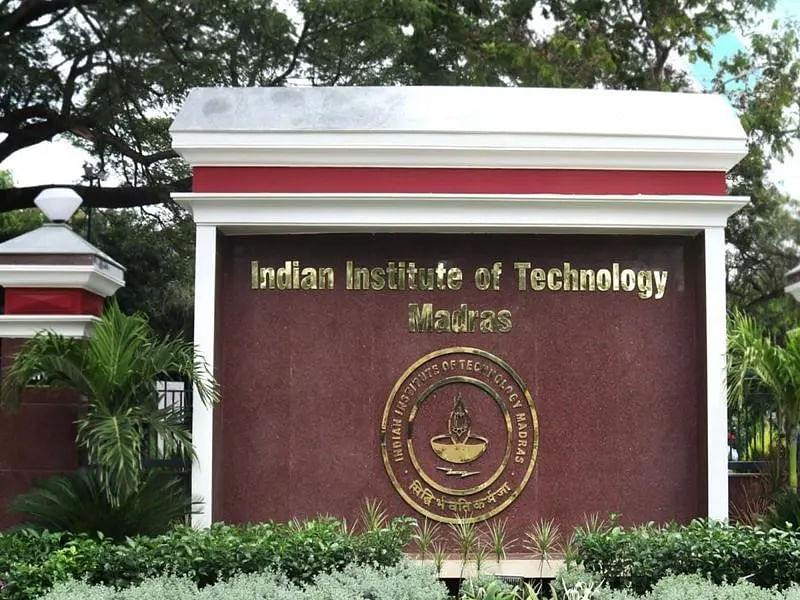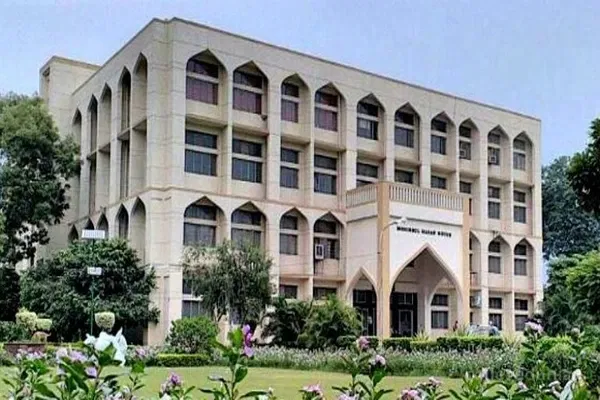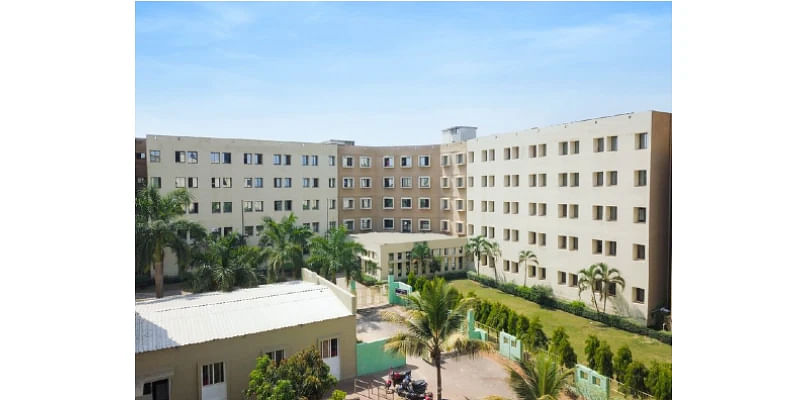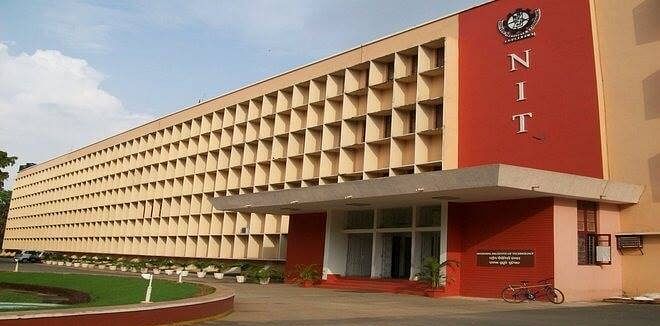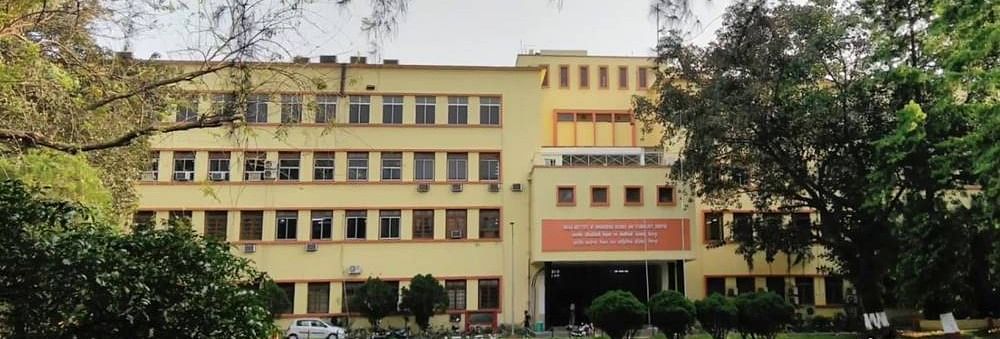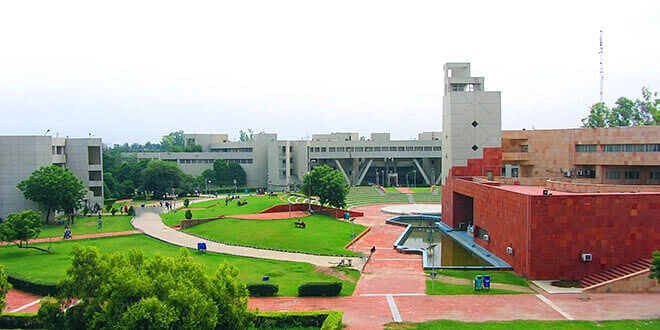M.Tech ECE (Electronics and Communication Engineering)

M.Tech ECE is a two-year full-time postgraduate course that deals with the utilization of nonlinear and active electrical components (such as semiconductor devices, especially transistors and diodes) to design electronic circuits, devices, integrated circuits and their systems. This course is well suited for students who are passionate about engineering and offers them ample opportunities in the electronics and communications industry. Upon completing the course, students can work as Electronics Engineers, Production Manager, Electronics Hardware Development Engineer, Network Specialist, Electronics and Communications Engineer, Data Analyst, etc.
Table of Contents
- About M.Tech Electronics and Communication Engineering
- Eligibility Criteria for M.Tech Electronics and Communication Engineering
- How To Get Admission in M.Tech Electronics and Communication Engineering?
- Popular Entrance Exams for M.Tech Electronics and Communication Engineering
- Top 10 M.Tech Electronics and Communication Engineering Colleges in India
- Fee Structure for M.Tech in Electronics and Communication Engineering
- Syllabus and Subjects for M.Tech Electronics and Communication Engineering
- Why Choose M.Tech in Electronics and Communication Engineering?
- Preparation Tips for M.Tech Electronics and Communication Engineering
- Scope For Higher Education
- Salary of a M.Tech Electronics and Communication Engineering Graduate
- Career Options After M.Tech Electronics and Communication Engineering
- Skills That Make You The Best M.Tech Electronics and Communication Engineering Graduate
M.Tech Electronics and Communication Engineering Course Details
| Degree | Masters |
| Full Form | Master of Technology in Electronics and Communication Engineering |
| Duration | 2 Years |
| Age | No specific age limit |
| Subjects Required | B.Tech / BE / MCA / M.Sc / Other equivalent degrees |
| Minimum Percentage | 50-60% |
| Average Fees | ₹20K - 1 LPA |
| Similar Options of Study | M.Tech (Applied Electronics), M.Tech (Electronics and Telecommunications Engineering), M.Tech (Digital Electronics and Communication Systems) etc. |
| Average Salary | INR 3- 7 LPA [Source: Payscale] |
| Employment Roles | Senior Software Engineer, Software Engineer, Embedded Software Engineer, Network Engineer, Electronics Engineer, ASIC Design Engineer, Java Developer, Radio Frequency Engineer etc. |
| Top Recruiters | Intel Corporation, IBM India Private Limited, InfoSys Limited, Netscribes, Medtronic Inc, Robert Bosch, DRDO, Qualcomm India Private Limited, Oracle Corp, Cognizant etc. |
About M.Tech Electronics and Communication Engineering
M.Tech ECE full form is Master of Technology in Electronics and Communication Engineering. M.Tech is a master’s program in the field of engineering. It is a two-year postgraduate program designed to give students knowledge on advanced research-based electronics and communication concepts. Electronics and Communication is a course in the engineering spectrum that deals with the research, design, manufacturing, and testing of electronic and communication devices.
This course falls under the umbrella of M.Tech. The course covers many advanced topics like Digital Communications, Communications and Networking, Information and Coding Theory, Microelectronics Devices and Circuits, Microwave antennas and RF circuits, Optical Communications, Machine Learning, and Signal Processing, etc.
Also Read: Best Engineering Courses In India
Eligibility Criteria for M.Tech Electronics and Communication Engineering
M.Tech ECE admission is offered to only those students who meet the eligibility requirements. The minimum M.Tech ECE eligibility requirement is, students must have pursued an undergraduate degree in B.Tech/ BE in any relevant engineering stream with a minimum aggregate of 50% from a recognised Institute. There is no specific age limit for M.Tech in Electronics and Communication Engineering. Students should additionally pass the National Level entrance exam GATE or other entrance exams conducted by colleges for admission.
How To Get Admission in M.Tech Electronics and Communication Engineering?
For pursuing M.Tech in ECE, students must ensure that they satisfy the eligibility criteria. While some colleges offer admission to M.Tech Electronics and Communication Engineering program on the basis of merit/marks obtained by students in the national level entrance exam GATE, some of the colleges conduct their own entrance exam for testing the eligibility of students for admission. M.Tech in ECE without GATE can be pursued from colleges that conduct their own entrance exams or offer direct admissions. Applications for admissions may be availed both from the University website or by directly visiting the college's Admissions Office. Mentioned below are the details of the admission process in general:
How to Apply?
M.Tech Electronics and Communication Engineering course information for admissions can be found on the college's official websites in which the students want to apply. Admission registration can be carried out through online and offline methods. Students must visit the college campus for offline admissions, fill out the application form, collect the brochure, and submit all the required documents. For online applications, students should visit the college's admission website and fill out the application form. The submission of the application fees can be made via online money transfer or through cheques/demand drafts from the bank. On submission of the application form, students will receive further correspondence from the college.
Selection Process
The selection process for the M.Tech ECE course in India is primarily based on the aspirant's GATE merit or marks. Some colleges conduct their entrance exams for admission. Based on the merit obtained by the student in the qualifying exam or an entrance exam, the shortlisted candidates are called for the group discussion and personal interview rounds conducted by the colleges. Based on the overall marks obtained by the students, the eligible candidates are offered admission to the program. Admission will be strictly offered to only those students who clear the minimum cut-off of the respective college and fulfill the eligibility requirements for M.Tech in ECE. The admit card and other details regarding the exam are notified on the college website beforehand. The students are informed about the results through email communication or can visit the colleges' official website.
Read More on M.Tech Admission
Popular Entrance Exams for M.Tech Electronics and Communication Engineering
Some of the top colleges offering M.Tech in ECE have an entrance exam-based admission process. The national level entrance exam GATE merit is considered in some colleges while others conduct their entrance exams. Some of the top M.Tech ECE entrance examinations are:
A Quick Glance at the M.Tech Electronics and Communication Entrance Exams
Students who desire to opt for M.Tech in ECE should study the exam pattern and syllabus well before time. This will help students in timely preparation for the entrance exams. In general, the most popular entrance exam, GATE, has the following pattern:
- Sixty-five questions are carrying 100 marks, which are to be completed in 3 hours or 180 minutes.
- There are three sections, including General Aptitude, Engineering Mathematics, and Core Subjects.
- The Engineering Mathematics will carry around 15% of the total marks, the General Aptitude section will carry 15% of the total marks, and the remaining 70% of the total marks is devoted to the core subject of the paper.
- GATE would contain questions of two different types are Multiple Choice Questions (MCQ) and Numerical Answer Questions.
Top 10 M.Tech Electronics and Communication Engineering Colleges in India
M.Tech ECE colleges are located all across the country in different regions. Students can opt for the best college depending upon their merit and specialization needed. Some of the best colleges for M.Tech ECE in India are:
|
Sl. No. |
Name of the College |
|
1 |
|
|
2 |
|
|
3 |
|
|
4 |
|
|
5 |
|
|
6 |
|
|
7 |
|
|
8 |
|
|
9 |
|
|
10 |
Fee Structure for M.Tech in Electronics and Communication Engineering
The M.Tech ECE fees for various colleges in India is around INR 20,000 - 1 LPA. The course fees may vary based on the type of institute, location, infrastructure, faculties, and facilities available.
|
Sl. No. |
Name of the Institute |
Average Annual Fees |
|
1 |
Indian Institute of Technology, Kanpur |
INR 2.14 LPA |
|
2 |
Indian Institute of Science, Bangalore |
INR 26,600 Per Annum |
|
3 |
Birla Institute of Technology and Science, Pilani |
INR 4.30 LPA |
|
4 |
National Institute of Technology Tiruchirappalli |
INR 99,250 Per Annum |
|
5 |
Indian Institute of Technology Madras |
INR 1.15 LPA |
Syllabus and Subjects for M.Tech Electronics and Communication Engineering
M.Tech ECE duration is two years with four semesters. M.Tech ECE syllabus is curated to include all Electronics and Communication concepts. The syllabus is designed in a way to prepare students for the complex industrial and electrical systems. Many elective subjects are available for students to choose from depending upon their specialization and areas of interest. Some specializations available in electronics and communication engineering are Communication System, Control and Instrumentation, Digital Design, Microwave and Optical Communication, Multimedia, Power System and VLSI Design, Embedded System etc. Upon completing the course, students can become Service Engineer, Technical Director, Field Test Engineer, Senior, Network Planning Engineer, Electronics and Communication Consultant, Research & Development Engineer, Junior Scientist, Software Engineer, Assistant Professor etc. Listed below are few core subjects in the course:
- Advanced Communication Engineering
- Digital Circuits & Systems
- Satellite Communication System
- Semiconductor Devices and Modelling
- VLSI Design and Embedded System
- Microwave & Optical Communication
Read More about M.Tech ECE Syllabus & Subjects
Why Choose M.Tech in Electronics and Communication Engineering?
Students often wonder about M.Tech Electronics and Communication Engineering details before choosing the course. Before deciding on a career, students come across queries like, "What is M.Tech Electronics and Communication Engineering?" and "Why choose M.Tech in Electronics and Communication Engineering?”. To understand answers to these questions, we have framed the following three pointers:
What is M.Tech in Electronics and Communication Engineering All About?
M.Tech ECE in India is a two-year-long postgraduate course that deals with an understanding of theoretical and practical electronics and communication concepts. The course is well structured to make students valuable professionals for Electronics and Computer, Network, System Integration, Communication technology, Software Engineering, Distributed and Embedded Systems, and the Digital Electronics and Communication industry. The course equips students with Digital Circuits, Microcontrollers, VLSI Technology and Design, Communication Engineering, Electronics, Industrial Electrical Systems, etc. It also encourages graduates to become electronics and communication engineers and work in many private and government organizations. The course is further divided into many specializations that students can choose from, depending on their subjects and areas of interest.
What Does a M.Tech Electronics and Communication Engineering Graduate Do?
M.Tech in ECE offers a wide range of career options for graduates in both private and public organizations. Electronics and Communication engineers are critical in community development; they use their skills to optimize the performance and efficiency of digital devices, embedded systems etc. Upon completing the course, students can work in various areas like Analog Transmissions, Digital and Analog Communications, Microwave Engineering, Wave Progression, Electronic and Communication devices etc. In addition, students can also opt for a teaching career in both govt. and private educational institutions.
Electronics Engineer: They are responsible for the flawless setup and execution of electronics systems. They are involved in designing and testing various digital devices, circuits, semiconductor devices etc.
Reasons Why M.Tech Electronics and Communication Engineering Can Fetch You a Rewarding Career?
M.Tech ECE can be a rewarding career for graduates as it offers ample opportunities in various sectors to the graduates. Electronics and Communication engineers are responsible for many development services like internet technologies, digital devices, telecommunications, electronics etc. Also, Electrical Engineering jobs are high-paying, and salaries rise with experience and expertise. This course opens up opportunities in various sectors like Telecommunication, Signal Processing, Mobile Communication, Microelectronics etc.
Demand: Electronics and Communication Engineering degrees have the immense advantage of covering tens of specializations, making the field very flexible. With digitalization on the go, there is an increasing demand for electronics and communication engineers. Along with this, the graduate starting salary for engineers is very generous after a master's degree.
Read More on M.Tech ECE Jobs
Preparation Tips for M.Tech Electronics and Communication Engineering
M.Tech in ECE is an upcoming career option, and students should be well prepared before pursuing the course. Some of the important tips for students seeking admission in M.Tech in ECE are:
Study about the Course: Do a detailed study of the course and its syllabus. Choose the best-suited career option for you after study.
Improvise Your Skills: For grabbing the best opportunities and good performance throughout the course, improve your communication and organizational skills. Also, enhance your mathematical and problem-solving skills.
Go for Internships: It will be beneficial for the students to go for internships and get real-time work experience.
Scope For Higher Education
M.Tech in Electronics and Communication Engineering is a master's degree that students pursue after B.Tech. There are many specializations under M.Tech in ECE that students can opt for. There are also certain higher study options available for graduate students after an M.Tech degree, which can help them in better understanding of the subject. Also, gaining more education can help the students make a career in research if they are interested in it. Listed below are some of the popular higher education options available for students:
- PhD in Electronics and Communication Engineering
- MBA
- M.Phil
Salary of a M.Tech Electronics and Communication Engineering Graduate
The average salary for a M.Tech ECE graduate is around INR 3-7 LPA (Source: PayScale), which would increase with the experience and skills. M.Tech ECE graduates can work as professionals in many different private and government organizations. Some of the job roles for students can be Electronics Engineers, Production Manager, Electronics Hardware Development Engineer, Network Specialist, Electronics and Communications Engineer, Data Analyst, etc. This course offers ample opportunities to students both in terms of job and higher education.
Read More on M.Tech ECE Salary
Career Options After M.Tech Electronics and Communication Engineering
The M.Tech ECE program will definitely add to the qualifications of B.Tech. graduates, thus improving their chances of getting hired. M.Tech in ECE graduates can go for jobs in both private and government tech based organizations. A broad range of sectors open up for Electronics and Communication engineering graduates like Analog Transmissions, Digital and Analog Communications, Microwave Engineering, Wave Progression, Manufacturing of electronic and communication devices etc. Students can also pursue higher studies or any other professional certificate courses. Some job roles offered to graduates are:
- Electrical & Electronics Engineer
- Professor & Assistant Professor
- Trainee Electronics Engineer
- Electronics Engineer
- Hardware Design Engineer
- Systems Engineer
- Production Engineer
Skills That Make You The Best M.Tech Electronics and Communication Engineering Graduate
M.Tech ECE graduates should demonstrate good written communication and problem-solving skills. They should be good at organizational skills and should come up with innovative ideas for projects. A few necessary skills for M.Tech ECE graduates are:
- Problem-Solving Skills
- Strong Analytical Skills
- Good Technical Skills
- Strong Mathematical Skills
- Planning Skills
- Strong Networking Skills
